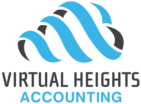An important part of tax planning is determining if you will pay yourself wages out of your company. There are a number of benefits to paying wages, including increasing deductions in your company, contributing to your retirement, and receiving additional tax credits.
Here’s a breakdown of the advantages that come with paying yourself wages.
Reduce Corporate Taxes
When you pay yourself wages out of your company, you can claim a deduction against your company’s income. For example, if you have $95,000 net profit in your company, and you decide to pay yourself $25,000 in wages, your company’s income is reduced to $70,000. Depending on the corporate tax rate at the date of your company’s year end, this would result in approximately $3,200 in tax savings.
Unlike wages, dividends paid from a company to a shareholder are not deductible against the company’s taxable income.
Contribute to Your Retirement
The Canada Pension Plan
Unless an employee is under 18 years old or over 60 years old, Canada Pension Plan deductions must be sent to the government based on wages earned. While shareholders of a company are not required to remit Employment Insurance, they are still required to send Canada Pension Plan and Income Tax deductions to the government on the employee’s behalf.
This means that as a shareholder, if you pay yourself wages from your company, you will be contributing to the Canada Pension Plan. You cannot contribute to the Canada Pension Plan by paying dividends.
Registered Retirement Savings Plan
Another opportunity that is open to shareholders when they pay themselves wages from their company is the ability to deduct contributions to a registered retirement savings plan (RRSP) against their individual taxable income. If an individual taxpayer doesn’t receive wages during the year, they cannot deduct RRSP contributions on their personal tax return.
At the time of writing, the maximum RRSP contribution limit is 18% of earned income from the previous taxation year. If you don’t have any earned income (wages), you can’t deduct RRSP contributions when calculating your taxable income. Any unused contribution room is carried forward to future taxation years.
For example, if you pay yourself $50,000 in wages, and don’t have any other earned income, you can contribute $9,000 to RRSPs. This is then deducted from your earned income to calculate your taxable income. In this example, you will pay tax on $41,000 rather than $50,000. If you only purchase $5,000 in RRSPs, you will have contribution room of $4,000 to carry forward and use in a future year.
A shareholder who receives dividends from their company and has no form of employment income, will not be able to deduct RRSP contributions against their individual taxable income.
When you pay yourself wages from your company, you increase tax deductions in your company while also creating benefits you can take advantage of as an individual taxpayer. If you’re not sure if paying yourself wages is the right thing for you and your company, contact our office for more information.





